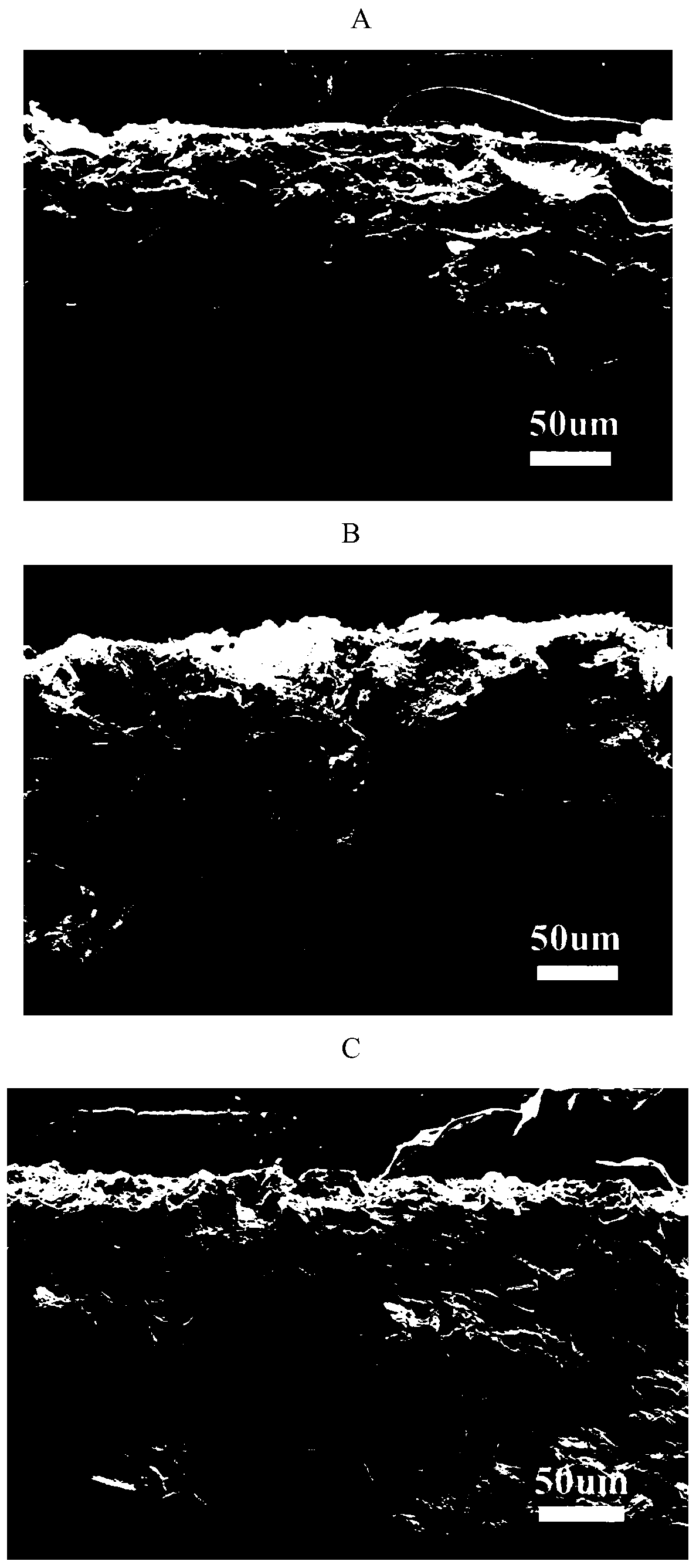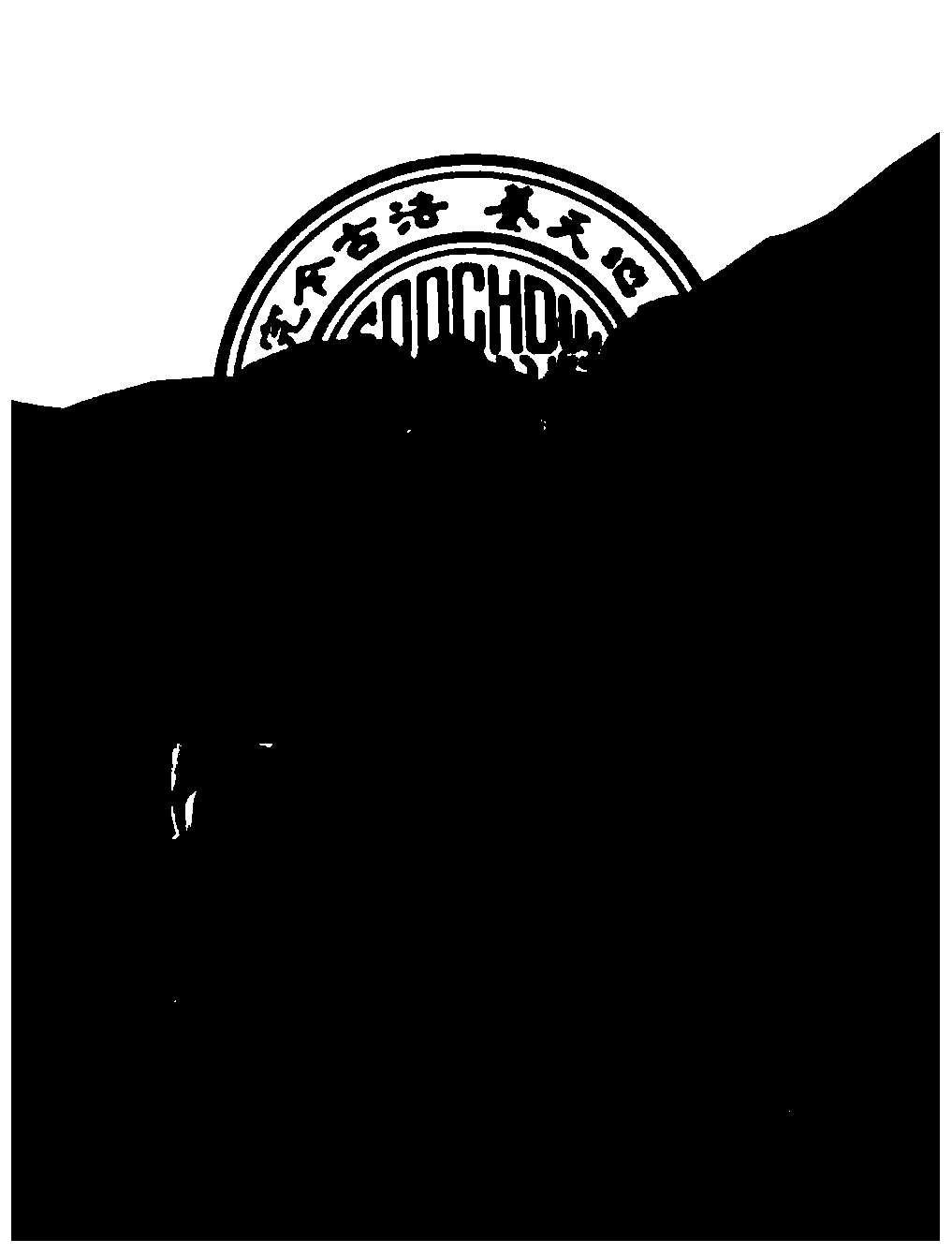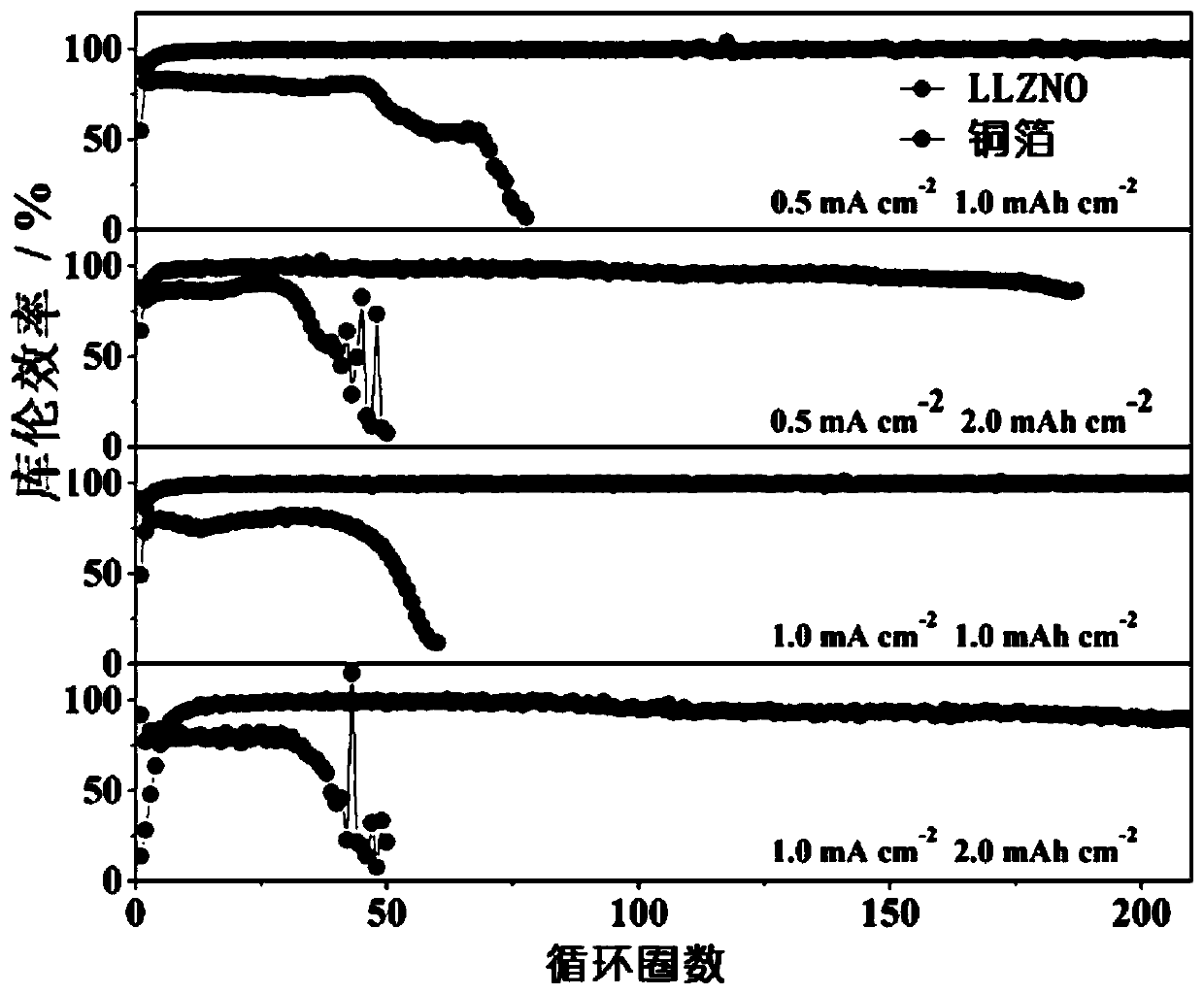Porous ceramic composite lithium metal negative electrode and preparation method thereof
A porous ceramic and metal negative electrode technology, which is applied in the field of lithium metal negative electrodes, can solve the problems of uncontrolled growth of lithium dendrites, battery safety issues, and low battery Coulombic efficiency, and achieve mass production, simple preparation methods, and structural high intensity effect
- Summary
- Abstract
- Description
- Claims
- Application Information
AI Technical Summary
Problems solved by technology
Method used
Image
Examples
Embodiment 1
[0037] Accurately weigh 5.4g of cerium oxide (CeO 2 ) powder and 0.6g PMMA powder were added to an agate mortar and ground for 20min to obtain a uniform mixed powder. Then accurately weigh 0.6g of polyethersulfone (PESf) powder and mix it into the above powder, then add 2.5ml of N,N-dimethylpyrrolidone (NMP) into it, and grind for 30 minutes to obtain a uniform viscous slurry. Transfer the slurry to a vacuum oven at room temperature and let it stand for 2 minutes to remove the air bubbles in the slurry. Then use a scraper with a thickness of 500um and use a coating machine to evenly coat the above viscous slurry on the cutting surface at a speed of 1m / min. On a good flat aluminum foil, then immerse the aluminum foil coated with slurry in 30mL ethylene glycol, soak for 24h, separate the cerium oxide film from the aluminum foil, wash the cured cerium oxide film separated from the aluminum foil with alcohol and dry it at 60°C Carry out drying in the oven, be referred to as dry f...
Embodiment 2
[0042] Accurately weigh 4.8g Li6.6La3Zr1.6Ta0.4O12 (LLZTO) solid electrolyte powder and 1.2g plant starch powder and add them into an agate mortar and grind for 20min to obtain a uniform mixed powder. Then accurately weigh 0.6g of polyvinylidene fluoride (PVDF) powder and mix it into the above powder, then add 2ml of N,N-dimethyl sulfoxide (DMSO) to it, and then quickly grind for 30 minutes to obtain a uniform viscous slurry. Transfer the slurry to a vacuum oven at room temperature and let it stand for 2 minutes to remove air bubbles in the slurry. Then use a scraper with a thickness of 1000um and use a coating machine to evenly coat the mixed slurry to the cut flat surface at a speed of 1m / min. On the aluminum foil, dip the coated slurry together with the aluminum foil in 50 mL of isopropanol. After soaking for 24 h, the cured LLZTO film separated from the aluminum foil was washed with alcohol and dried in an oven at 60 °C.
[0043] The dried LLZTO film was cut into discs wi...
Embodiment 3
[0046] Accurately weigh 5.7g Li0.35La0.55TiO3 (LLTO) powder and 0.3g acetylene black powder and add them into an agate mortar and grind for 20min to obtain a uniform mixed powder. Then accurately weigh 0.6g of polyethersulfone (PESf) powder and mix it into the above powder, then add 2.5ml of N,N-dimethylpyrrolidone (NMP) into it, and then quickly grind for 30min to obtain a uniform viscous slurry. Transfer the slurry to a vacuum oven at room temperature and let it stand for 2 minutes to remove the air bubbles in the slurry. Then use a scraper with a thickness of 400um and use a coating machine to evenly coat the mixed slurry to the cut flat surface at a speed of 1m / min. On the aluminum foil, immerse the coated slurry together with the aluminum foil in 30mL ultrapure water. After soaking for 24 hours, the cured film separated from the aluminum foil was washed with alcohol and dried in an oven at 60°C. It is called dry film in the accompanying drawings, and it is the same in th...
PUM
| Property | Measurement | Unit |
|---|---|---|
| pore size | aaaaa | aaaaa |
| pore size | aaaaa | aaaaa |
| pore size | aaaaa | aaaaa |
Abstract
Description
Claims
Application Information
 Login to View More
Login to View More - R&D
- Intellectual Property
- Life Sciences
- Materials
- Tech Scout
- Unparalleled Data Quality
- Higher Quality Content
- 60% Fewer Hallucinations
Browse by: Latest US Patents, China's latest patents, Technical Efficacy Thesaurus, Application Domain, Technology Topic, Popular Technical Reports.
© 2025 PatSnap. All rights reserved.Legal|Privacy policy|Modern Slavery Act Transparency Statement|Sitemap|About US| Contact US: help@patsnap.com



